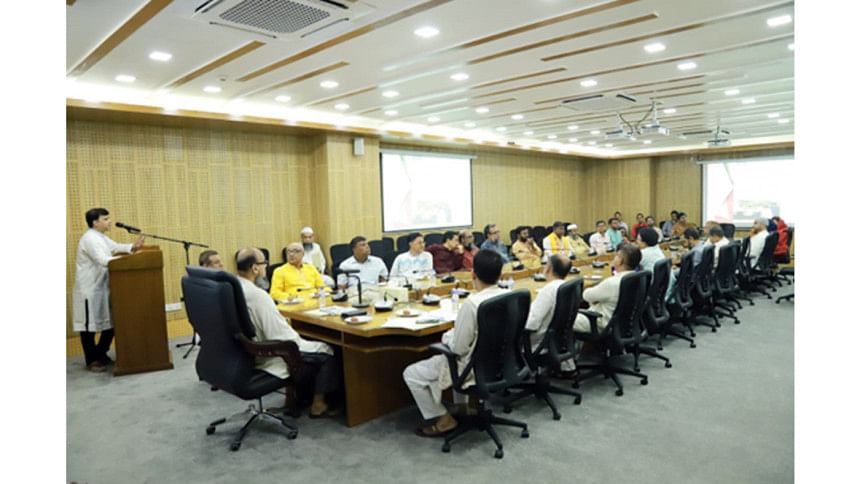BIM marks Pahela Baishakh with GI Product exhibition, open discussion on commercial potential

The Bangladesh Institute of Management (BIM) hosted a special event on April 14, 2025—Pahela Baishakh—titled "GI Product Exhibition and Open Discussion on Its Commercial Expansion," at its Sobhanbagh campus in Dhaka.
The gathering featured a broad showcase of Bangladesh's Geographical Indication (GI)-registered products, presenting a rare convergence of cultural heritage and commercial ambition.
The event marked a revival of BIM's training and awareness initiatives surrounding Intellectual Property, with a renewed focus on GI items. Held on Bangladesh's most widely celebrated cultural holiday, the program emphasized both the cultural significance and growing economic relevance of GI products.
Md. Obaidur Rahman, secretary of the Ministry of Industries, attended as chief guest, while BIM Director General Rashidul Hasan presided over the session. The discussion was moderated by Saeedur Rahman, BIM's head of research, who introduced the core objectives of the program, including raising public awareness of GI items, encouraging new GI registration applications, and engaging BIM's Postgraduate Diploma in Supply Chain Management (PGDSCM) alumni in GI-focused projects.
Further aims included identifying research areas for expanding GI product markets—both domestically and abroad—and announcing the relaunch of BIM's Intellectual Property training programs.
Md. Belal Hossain, assistant director of the Department of Patents, Designs, and Trademarks (DPDT), provided a technical overview of the GI registration process. An open dialogue followed, in which the industry secretary engaged with participants. The session concluded with closing remarks from BIM's director general.
Prior to the panel, guests were served a traditional breakfast prepared with GI-certified ingredients. The exhibition was officially inaugurated by the chief guest and remained open until early afternoon.
Speakers emphasized the rising public interest in Intellectual Property rights, with GI products emerging as a key focus due to their connection with specific geographic origins. These items, they noted, reflect Bangladesh's distinctive craftsmanship and cultural traditions, and their legal protection is rooted in international agreements. Long-term commercial success, however, depends on strong collective management systems.
Participants cited several notable GI products—including Jamdani Saree, Hilsa fish, Rajshahi Silk, Dhaka Muslin, Rangpur's Shotoronji, Chapainawabganj's Khirshapat mango, and Kalijira rice—as symbols of national identity. Since 2015, when Jamdani became the first product to receive GI registration, 56 items have earned the designation, with additional applications under review by DPDT.
Recommendations from the forum included the creation of GI-related digital content, the development of GI-themed menus and gift boxes, and broader application of GI tags to enhance visibility and value in the marketplace.
Still, several speakers acknowledged that the economic impact of GI registration in Bangladesh remains underexplored. They urged BIM to spearhead in-depth research to fill this gap and help shape a more sustainable commercial future for these culturally significant products.

 For all latest news, follow The Daily Star's Google News channel.
For all latest news, follow The Daily Star's Google News channel. 



Comments